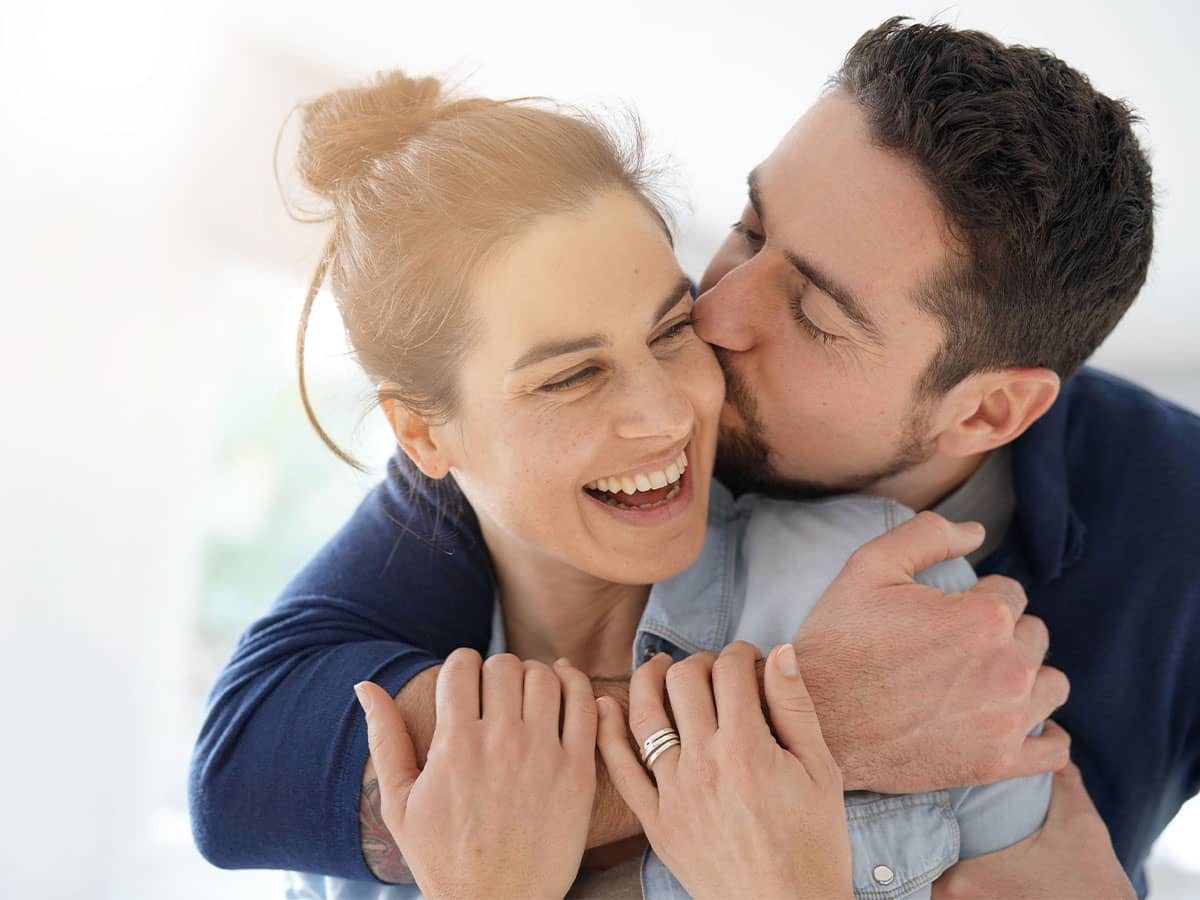Editor's Note: On Saturday, January 29, Gil Schamess died at his home at the age of 34, just six months after learning he had metastatic liver cancer. Before his death, Gil and Lisa wrote a column for Beliefnet on their struggle to live with his illness. With this column, Lisa begins the story of her new life with their 15-month-old daughter, Mona.
A few nights after Gil's diagnosis last summer, we lay in the dark discussing entropy. We pondered whether chaos, which slows down when it meets resistance, could be directed away from a vulnerable place. The cancer was still only a spattering of X-rayed shadows on Gil's liver and lungs. What cosmic force might disperse them, we wondered, when medicine offered so little hope? Talk had served us well in the past, bridged the bright space between our separate selves by day and the dark space between our bodies at night, mended our differences, tickled our ribs. Now we were desperately trying to talk chaos away from our bed.
Gil had nearly majored in physics in college, but there was never hope for me as a scientist. I always carry the logic too far, shaking a proven theory vigorously for further implications, wanting 20 falling apples where one should do.
"There's a way to prove that gravity is an effect, not an objective force," said Gil. "Say you put a marble on a not-so-taut drum skin, and you make a little depression. Put a medicine ball there, and you make a bigger one. Put the marble down again, and, eureka, it rolls toward the bigger depression. Gravity as effect instead of cause."
"What were we talking about this for?" I was tired, confused, anxious for epiphany.
"We were talking about dimensions, perception, and how space can be bent," said Gil.
"If space can be bent, is it a substance?" Shaking the tree again. I couldn't see his face, just the glimmer along his profile, like an eclipsed sun.
"That's a very good question."
"If space is a substance, can absence be a presence?" My journal entry of that night reflects no answer.
 | ||
| Now that Gil is gone, his absence is everywhere present. | ||
 |
Where am I now, without him? The valley of the shadow of death, that's where. Mourning is a depression my steps can't resist, a lowland whose cause is love. For most of the illness, we walked in this shadow together. When Gil dropped my hand and began to falter, I plodded on, Orpheus to his Eurydice: opening doors, getting the cane and later the wheelchair, starting the car. I went ahead to plan Mona's birthday party, buy the gifts he would have bought--it was always him, before then, lavishing gifts on her. It was one of the last things taken from him, that interest in the world's merchandise.
Looking back, I now realize he didn't fall behind me climbing out of the underworld. I fell behind him slipping downward. Though he weighed less than me in the end, his was the heavier body. He could scarcely hold himself up. Yet the heavier he got, the less of him there was.
One night, I made the bed while he watched TV behind me. I felt a chill of emptiness against my back. I turned around. Gil was smiling weakly at something on the flickering screen, an old Tintin comic spread across his lap. If I hadn't seen him with my own eyes, I wouldn't have believed he was there: He had presence but no density. Until he turned to look at me, I still felt alone in the room.
I said, "You're a million miles away."
"Really?" he asked, puzzled. "I feel like I'm right here." That was six days before he died.
The week that remained to him, he really did seem to be right here. Only a month before, he had told me his greatest fear: that he'd know he was leaving us, that he would have to plumb the depth of death's valley alone. But to the end of his life, he was present, at home, with us. In a hurry to get on, but present.
Those last six days were full of astonishing grace along with the unholy grind of his body's failing: There were two fluffy snowfalls in three days, family and friends showing up at just the right times, movies and music and reading aloud. It was terrible, it was terrific, but he wasn't alone or cast adrift on a rented hospital bed in our living room. He dozed on our sofa, and to our astonishment he insisted that the bitter medicine ball of pain had gradually lifted from his middle. The night before he died, I slept at his feet. He roused in the wee hours, briefly, and said to no one in particular, "I could just go on ahead." Exactly 12 hours later, he did.
Read the next installment of "Widow's Walk," Light & Shadow, or choose another column here:

